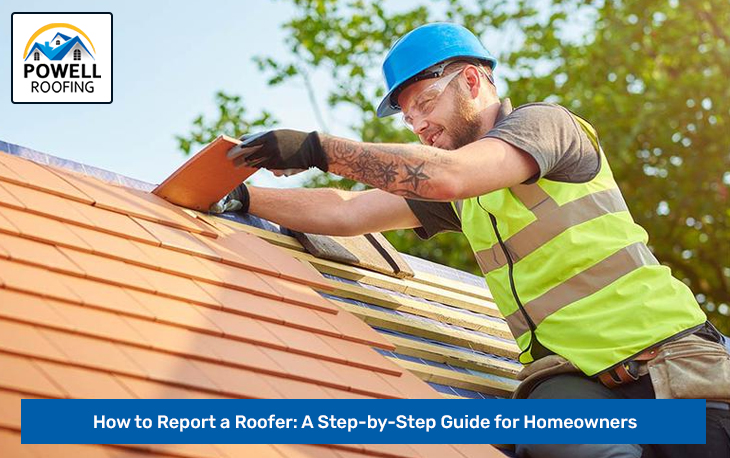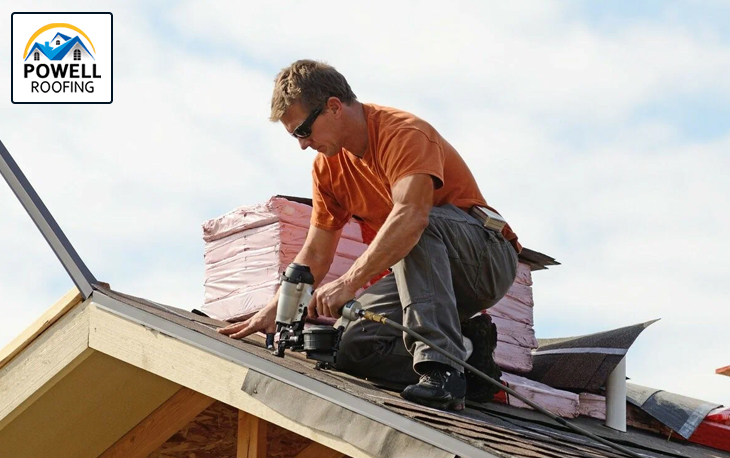How to Report a Roofer: A Step-by-Step Guide for Homeowners
Getting a new roof can be exciting. However, sometimes things go wrong with the people we hire. What if the roofer does a bad job? What if they don’t finish the work? It can be very frustrating for homeowners. It is important to know your rights as a homeowner. Moreover, it’s equally important to know how to act if needed. This information helps you protect yourself and your home. So, let’s learn how to handle these situations effectively.

1. Gather All Your Documents
First, you need to collect all the important papers. This includes the contract you signed with the roofer. It also includes any receipts for payments you made. Plus, gather any emails or text messages you exchanged. These documents prove what you agreed upon with the roofer. Also, they show how much money you paid. For example, if the contract said they would use certain shingles, the contract is important. Similarly, if you have a receipt showing you paid a deposit, that is also important. Therefore, gathering all these papers is the first step.
Next, take pictures of the work. If the work is bad, take clear photos. These photos serve as evidence of the poor work. For instance, if there are missing shingles, take a picture. Likewise, if there are leaks, photograph the water damage. These pictures help you show others what went wrong. Additionally, they are very helpful if you need to file a complaint. Thus, taking pictures is a very important part of gathering your documents.
2. Talk to the Roofer
First, try talking to the roofer directly. Explain the problems you are having. Sometimes, there is just a misunderstanding. For instance, maybe they thought they were supposed to install a different type of vent. Therefore, talking to them can clear up any confusion. Furthermore, it gives them a chance to fix the problem.
After that, keep a record of your conversations. If you talk on the phone, write down the date and time. Also, write down what you talked about. If you send an email, save a copy. This helps you remember what you discussed. For example, you might write down “Spoke to John on October 26th about the leaking roof.” Then, you will have a record of the conversation. In addition, this record can be useful later.
Additionally, give the roofer a reasonable time to fix the issues. Don’t expect them to fix everything immediately. However, if they don’t respond or don’t fix the problems after a reasonable time, you need to take further action.
3. Contact the Licensing Board
First, find out if your state requires roofers to have a license. Many states do. If they do, there is usually a licensing board. This board makes sure roofers follow the rules. For example, if a roofer does bad work, the board can take action. Therefore, it is important to know if your roofer is licensed.
Next, file a complaint with the licensing board if your roofer is licensed. Explain the problems you are having. Provide the documents and pictures you gathered. The board will investigate your complaint. For instance, they might send an inspector to look at your roof. Then, they will decide what action to take. In addition, this can help you get the problem fixed.
4. File a Complaint with the Better Business Bureau (BBB)
First, the Better Business Bureau (BBB) is an organization that helps people find trustworthy businesses. They also handle complaints against businesses. Therefore, filing a complaint with the BBB is a good idea. For instance, if many people complain about the same roofer, the BBB will give them a bad rating.
Next, when you file a complaint, explain the problems you had. Include copies of your documents and pictures. The BBB will contact the roofer and try to help you resolve the issue. For example, they might help you and the roofer reach an agreement. Then, the problem can be solved.
5. Consider Legal Action
First, if other steps don’t work, you might need to talk to a lawyer. A lawyer can advise you on your legal options. For instance, they can tell you if you have a strong case to sue the roofer. Then, you can make an informed decision.
Next, you might be able to sue the roofer in small claims court. This is a simpler type of court for smaller amounts of money. You don’t always need a lawyer for small claims court. For example, if the repairs cost less than a certain amount, you can go to small claims court. Then, you can try to get money to fix the roof.

6. Leave Online Reviews
First, leaving online reviews can warn other homeowners. You can leave reviews on websites like Google, Yelp, and other review platforms. For instance, you can write about your experience with the roofer. Then, other people can read about it.
Next, be honest and factual in your reviews. Don’t use bad language. Just explain what happened. For example, you can write, “The roofer did not finish the job and left leaks in my roof.” This is a clear and honest statement.



